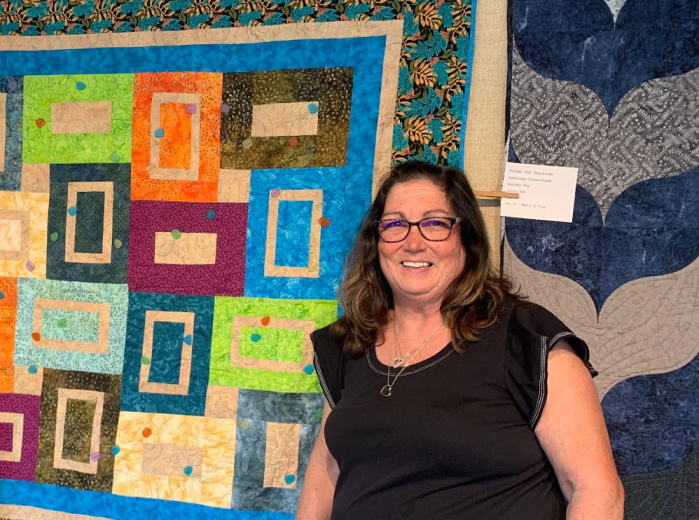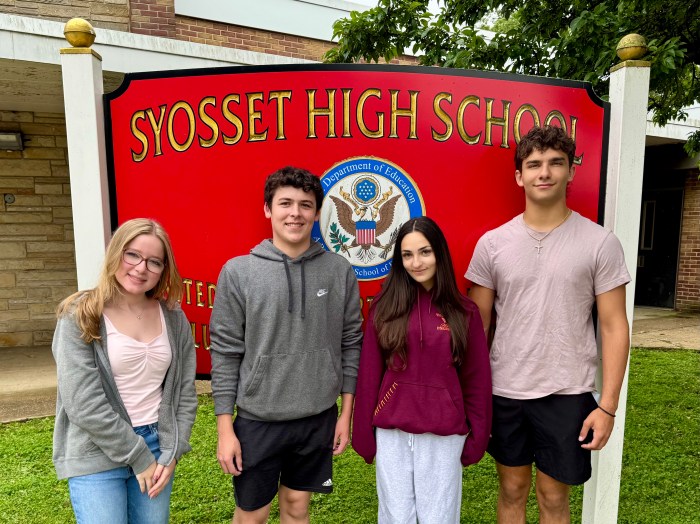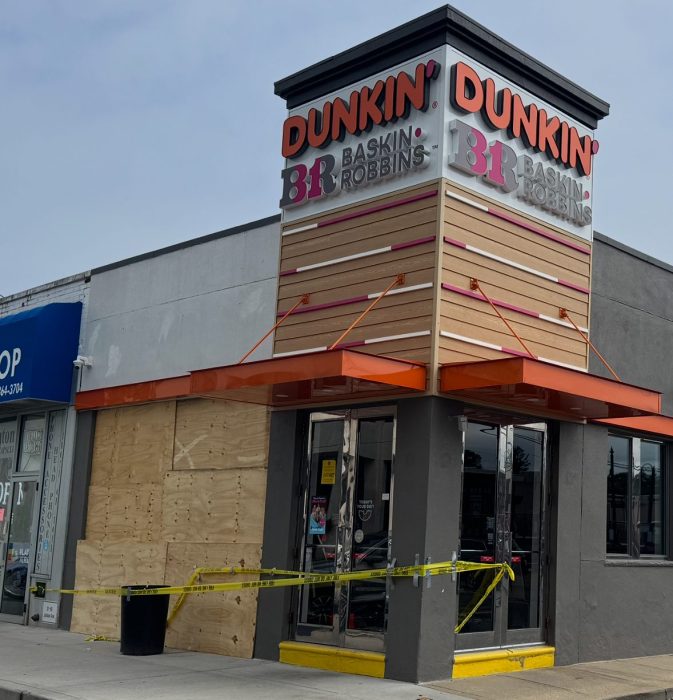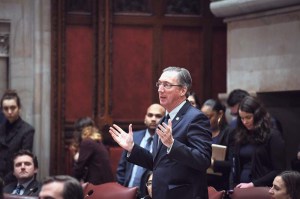
Since taking over the seat that was once filled by long-time New York Senator Carl Marcellino, Senator Jim Gaughran has been completely engulfed in the world of Albany politics, passing bills and debating issues that concern the Fifth Senate District.
After his first legislative session, he sat down with the Syosset-Jericho Tribune to discuss what it’s been like to serve in the state Senate and what he looks to accomplish moving forward.
Q: What has it been like to settle into this position thus far?
A: Well, it’s been a roller coaster. I feel like we’ve accomplished a lot in six short months. The big difference between being elected as a state senator and serving as a fresh senator is the historic opportunity that’s here. Normally, if you get elected as a state senator or to the state assembly, you pretty much don’t have much influence because of the nature of it and there’s little turnover in the state legislature. The Democratic majority has 39 people and 15 are brand new, such as myself, had an ability to get things done more than you normally would, including the fact that I chair the local government committee. It oversees the laws of towns, villages and county governments.
There are a lot of things that we’re proud of. One is starting electoral reforms. New York is lagging behind in voter participation, one of the lowest in the country, primarily because it’s so difficult for people to vote, starting with only having one day. Most of the larger states have early voting. As of this year, starting in October, people will be able to vote 10 days before the election. It’s a big difference.
We passed some laws dealing with gun safety. One that I co-sponsored is the red flag law, which sets up a system that if somebody is viewed as not having the mental capacity to use a gun because there’s a fear they can use the gun to harm themselves or others, the gun can be taken away from them. This is a law that evolved from people who were parents of children who were killed in Newtown and Parkland. If that law would have been in effect, their loved ones would be alive.
Q: What do you feel you’ve done well with?
A: One of the bills that I wrote that will hopefully be signed by the governor is to allow public water districts or water authorities to sue polluters—manufacturers of chemicals and other contaminants—where they have basically polluted our drinking water supply. The change that I made, which includes a three-year statute of limitations, gives these public water entities the ability to sue and not be thrown out in court.
The other law I wrote that I’m proud of is there were a bunch of people involved right after 9/11 and the months and years after, who worked alongside firefighters, police officers and other emergency responders and now have debilitating medical issues, like cancer. They aren’t entitled to the same disability benefits that the first responders have, simply because of the way the bill was written. One constituent of mine worked for the Department of Environmental Conservation right under the Brooklyn Bridge. He got a call from his boss to turn back, but he was there throughout the weeks after and has serious medical issues. Potentially, 600 people can qualify, but they need to prove they have medical conditions directly related to 9/11.
Q: What are your goals for the next session?
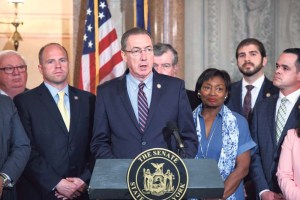
(Photos courtesy of Senator Jim Gaughran’s office)
A: As chairman of the local government committee, I will hold hearings throughout the summer and fall—not just on Long Island, but throughout the state—to see if we can come up with laws to help local governments reduce costs. Maybe we can avoid some of that. I will be doing more limousine safety laws that we passed in the Senate but didn’t pass in the Assembly. I’m very disappointed in that. We need to push to have that done because constituents of mine and people across the state had family members die because of limo crashes that were caused by drivers who shouldn’t have been on the road.
Q: What’s your message for constituents going forward?
A: We need to do more to give the tools to local governments to reduce property taxes. One of the biggest things is the first bill I passed in the Senate, making the 2 percent property tax cap permanent. I was the sponsor of that law and it’s now the law of the land, and it’ll probably save us for decades. It pressures school districts and local governments to manage their budgets. We got a record amount of school aid this year. Property tax is getting more out of control. My goal for next year is to get additional funding for our local school districts. Glen Cove, in particular, got about a 10 percent increase this year. I’m looking to continue that for next year. I need to make sure that the State of New York knows that Long Island, with our higher cost of living and large immigrant populations moving in, we are getting our fair share. We have some of the greatest schools. We have some schools that are struggling, and I’d like to have all school districts be of high caliber. Education is the most important thing in terms of funding in the state budget.
What did you think of this article? Share your thoughts with me at jwolkin@anton
mediagroup.com.




